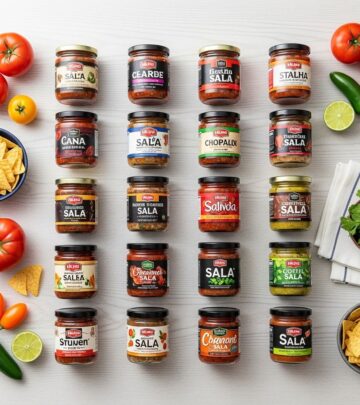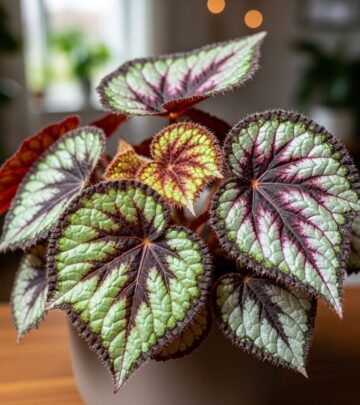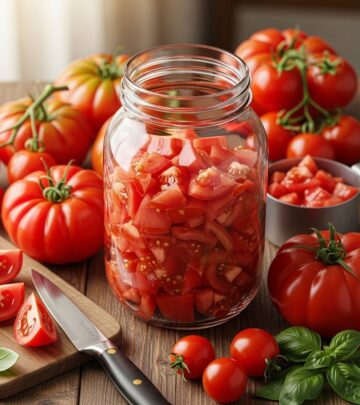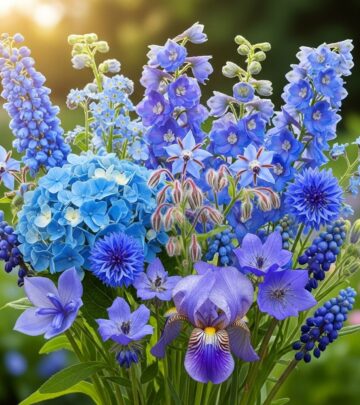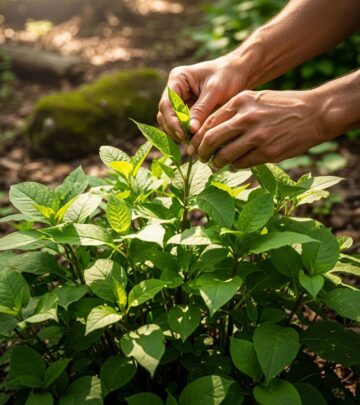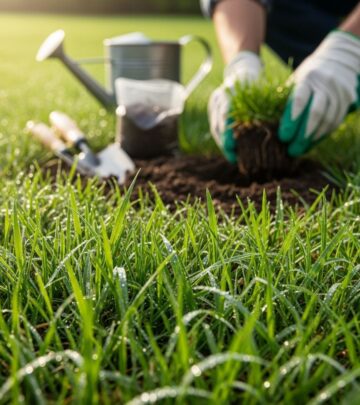Required Reading: Essential Garden Newsletters for Enthusiasts
Curated expertise meets seasonal guidance for thriving outdoor havens.
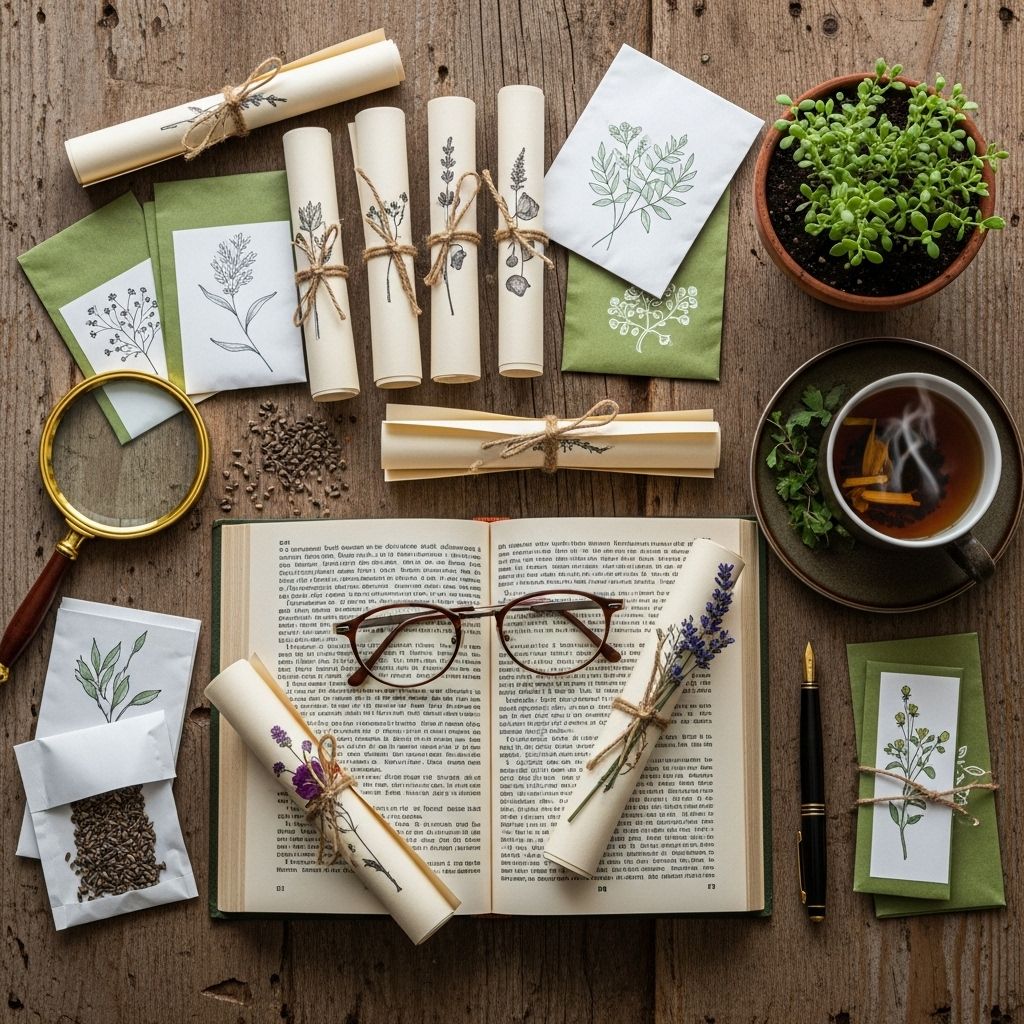
Image: HearthJunction Design Team
In a world where gardening wisdom is flourishing online, subscribing to the right garden newsletter can transform your outdoor journey. From ecological insights to hands-on design tips, these newsletters bring together the expertise of horticulturists, designers, and academics. Whether you’re just getting your hands dirty or are a seasoned landscape designer, there’s a newsletter packed with the advice, inspiration, and news you need. Here, we profile some of the most celebrated garden newsletters that should make their way into your regular reading rotation.
Why Garden Newsletters Matter
Garden newsletters deliver curated content right to your inbox, helping you stay up-to-date with the latest discoveries, expert tips, and thoughtful essays. These subscriptions are more than just updates—they are lifelines to a vibrant community of plant lovers and designers who continually shape our outdoor spaces.
- Timely access to new trends, scientific research, and seasonal advice
- Direct learning from leading horticulturists and landscape designers
- Opportunities to join discussions, attend events, and grow your knowledge
Top Garden Newsletters to Inspire and Inform
Grow Like Wild
Grow Like Wild stands out as a go-to resource for ecologically minded gardeners. Developed by Rebecca McMackin, a renowned ecological horticulturist, this newsletter appears on a bi-monthly basis, offering a dense bouquet of wisdom each time it arrives. Each edition features:
- Links to cutting-edge resources and garden news
- Coverage of significant ecological events
- Community updates and calls to action
The ethos of Grow Like Wild centers around the intersection of ecology and practical gardening, guiding gardeners as stewards of their local environment. McMackin’s thoughtful curation and accessible writing ensure each issue is as engaging as it is educational.
Planted Newsletter
Produced weekly by Dr. Jared Barnes—university professor, plantsman, and hands-on gardener at Ephemera Farm in Nacogdoches, Texas—the Planted Newsletter excels at blending academic rigor with personal storytelling. What distinguishes Planted?
- Brief, approachable updates on scientific research and plant trials
- Highlights of what’s growing and changing in Barnes’s own garden
- Links to further reading, including academic articles and practical guides
The Planted Newsletter strikes a unique balance, making high-level horticultural research accessible while sharing real-world lessons from the field. It’s ideal for gardeners wanting a quick, digestible dose of both science and soul.
Prairie Up!
Garden writer and designer Benjamin Vogt’s newsletter, Prairie Up!, is an impassioned call to “unlawn America” and reinvigorate our landscapes with native prairie plantings. Rooted in Nebraska, but with a message resonating across the continent, Prairie Up! includes:
- Actionable advice for establishing and maintaining prairie gardens
- Event listings, including classes for deeper learning
- Garden news highlights and links to conservation resources
Vogt’s commitment to restoration through gardening permeates every issue. By encouraging gardeners to reimagine their lawns and embrace biodiversity, Prairie Up! serves as both an educational resource and an activist’s manifesto.
Dig Delve
For those seeking evocative writing and design mastery, Dig Delve, led by landscape designer Dan Pearson, is a must-read. This subscription-based quarterly publication delivers a beautifully written weekly newsletter to subscribers’ inboxes. Dig Delve is characterized by:
- Personal essays exploring the creative and ecological dimensions of gardens
- Professional, photo-rich content with a painterly eye for landscape
- Most content reserved for paid subscribers, ensuring high-quality, curated updates
Pearson’s reputation as a thoughtful, poetic designer is reflected in Dig Delve’s narrative-rich approach. Each edition offers a sensory-rich narrative, connecting readers to the rhythms and revelations of cultivating meaningful outdoor spaces.
Related “Required Reading” Book Recommendations
While newsletters keep gardeners engaged in the flow of seasonal insights, several books also come highly recommended for transforming gardening practice and perspective. These reads offer deeper dives into current movements in ecological and small-space gardening.
Your Natural Garden by Kelly D. Norris
In Your Natural Garden, Kelly D. Norris explores the fundamentals of cultivating and maintaining an ecological garden. The book lays out a thoughtful structure designed to help gardeners form a meaningful relationship with their landscape. Key features include:
- Organizational sections: Place, Complexity, Legibility, and Flow
- Mini-essays offering thematic guidance and design ideas
- Emphasis on stewardship and the evolution of the garden over time
- Gorgeous photography, mainly by Norris himself, to illustrate concepts
Norris believes in working with the land’s inherent character, focusing first on “Place,” and urges readers to trust their intuition as they develop experience. He advocates for adding layers to traditional borders instead of removing them, and always encourages gardeners to define their “why” for more fulfilling results.
The Less is More Garden by Susan Morrison
The Less is More Garden is a practical guide for transforming small outdoor spaces into lush, personalized, and family-friendly havens. Susan Morrison covers:
- Visually accessible design templates for various garden shapes, including awkward or narrow lots
- Inspirational photos spanning numerous garden design styles—from modern to cottage
- Themed gardens such as moonlight and sensory spaces, with suggestions for edibles, ornamentals, and multi-functional plants
- Comprehensive coverage of critical design considerations for small gardens
Morrison’s approach demonstrates that thoughtful, intentional design allows even the smallest spaces to feel lush and inviting. Her pictorial style is both instructive and aspirational, encouraging experimentation regardless of available square footage.
What Makes a Newsletter Truly Worth Reading?
Not all newsletters are created equal. The best stand out by providing:
- Frequency: Delivered regularly, but not so often as to overwhelm
- Reliability: Consistently packed with thoughtful, curated content
- Variety: Ranging from hands-on how-tos and seasonal checklists to essays and event alerts
- Community: Opportunities for readers to interact, ask questions, and build connections
- Expertise: Authorship by respected and experienced garden professionals
Comparing Newsletter Highlights
| Newsletter | Author | Frequency | Focus | Subscription Model |
|---|---|---|---|---|
| Grow Like Wild | Rebecca McMackin | Bi-monthly (approx.) | Ecological gardening, resources, events | Free |
| Planted Newsletter | Jared Barnes | Weekly | Research, plant trials, personal updates | Free |
| Prairie Up! | Benjamin Vogt | Varies | Native plants, “unlawn” movement | Free |
| Dig Delve | Dan Pearson | Quarterly Magazine; weekly newsletter | Essays, design, photography | Paid (with some free correspondence) |
Finding the Right Garden Newsletter for You
With so much available, choosing the ideal newsletter boils down to your personal gardening interests. Here’s a brief guide:
- Interested in ecological restoration? Choose Grow Like Wild or Prairie Up!
- Craving horticultural science and trials? Try the Planted Newsletter
- Seeking literary inspiration and poetic design stories? Subscribe to Dig Delve
- Transforming a small space or yearning for garden design ideas? Read Morrison’s The Less is More Garden
- Wanting a deeper dive into wild and naturalistic gardening? Pick up Your Natural Garden by Norris
How to Make the Most of Your Garden Newsletter Subscriptions
To maximize the value of your subscriptions:
- Create a dedicated email folder for garden content
- Set aside regular time to read and reflect
- Connect with authors and fellow readers via social channels or comment sections
- Apply new ideas and document the results in your garden journal
Frequently Asked Questions (FAQs)
How do I choose the best garden newsletter for my interests?
Identify your gardening priorities—ecology, design, science, or inspiration—then select a newsletter with content curated by a trusted expert in that field.
Are there newsletters tailored to small-space or urban gardeners?
Yes, “The Less is More Garden” book and some newsletters provide ideas specifically for maximizing small plots, containers, and challenging urban spaces.
Can beginners benefit from these newsletters?
Absolutely. Most newsletters offer accessible advice for all levels, and reading regularly accelerates learning and confidence.
Is it necessary to pay for a newsletter?
Many high-quality newsletters are free. Subscription-based options like Dig Delve often provide enhanced content, but valuable free alternatives abound.
How can I engage more deeply with the garden newsletter community?
Many authors encourage reader interaction via email, comment spaces, and social media. Participating in events or discussions can also connect you with fellow enthusiasts.
Conclusion: Cultivating Connection Through Curated Content
The right newsletter is more than a resource—it’s a dependable companion on your garden journey. With expert guidance and a steady flow of new ideas, every gardener can find fresh inspiration and practical solutions for every season. Subscribing to one or more essential garden newsletters ensures you’ll always have thoughtful, timely advice close at hand—and plenty to look forward to in your inbox.
References
- https://www.gardenista.com/posts/required-reading-favorite-garden-newsletters/
- https://www.gardenista.com/tag/required-reading/
- https://www.gardenista.com/posts/required-reading-your-natural-garden-kelly-d-norris/
- https://www.gardenista.com/posts/required-reading-less-garden/
- https://www.gardenista.com/posts/required-reading-problem-garden/
Read full bio of medha deb






